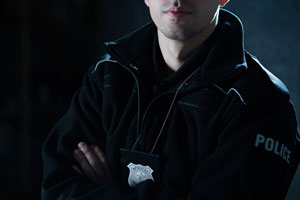The Colorado Supreme Court has ruled that police officers may testify about how they interpret body language without first being designated as expert witnesses.
The Non-Verbal Response
A fifteen-year-old student was sent to the school counselor after a teacher expressed concern that the student appeared ill. During his meeting with the counselor, the student explained that he had attended a concert the night before with his thirty-five-year-old stepsister, Justine Murphy, and that he had used methamphetamine with her before the concert.
The student was admitted to a local hospital for evaluation and recovery. The school resource officer, Deputy Mark Johnson, interviewed the student while his father was present. During the interview, Deputy Johnson asked the student where he got the methamphetamine and if he had gotten it from his stepsister. Deputy Johnson later testified that instead of responding, the student’s body language changed, instead of looking directly at him, he looked down and away. The deputy took the student’s nonverbal response to mean that he didn’t want to answer because the answer was yes, so he asked a follow-up question, “Did she just give it to you or did she sell it to you?” The student responded that “She sold it to me.”
Murphy was charged with distributing a controlled substance and contributing to the delinquency of a minor.
Expert Designation Issue
Prior to trial, defense counsel objected to Deputy Johnson testifying about the inference he had drawn from the student’s non-verbal response. Defense counsel argued that the deputy should have been first qualified as an expert witness.
The trial court overruled the objection, finding that Deputy Johnson’s testimony constituted lay opinion testimony because he had observed the student’s body language and had a rational basis for forming an opinion about the body language. A jury found Murphy guilty of distributing methamphetamine and contributing to the delinquency of a minor.
Murphy appealed and the court of appeals reversed, ruling that Deputy Johnson’s testimony was improper lay testimony “because it provided more than an opinion or inference rationally based on his perception.” Instead, the court concluded that Johnson’s testimony was based upon his training and experience. It could just as easily be said that Johnson’s testimony was improper because it was speculative.
The state appealed to the Colorado Supreme Court. The Colorado Supreme Court granted certiorari. The court clarified that lay witnesses are generally confined to stating facts, as opposed to providing opinions, inferences, or conclusions. Lay witnesses may provide opinion testimony where it is “(a) rationally based on the perception of the witness, (b) helpful to a clear understanding of the witness’[s] testimony or the determination of a fact in issue, and (c) not based on scientific, technical, or other specialized knowledge within the scope of Rule 702.” In contrast, expert opinion testimony is “scientific, technical, or other specialized knowledge [that] will assist the trier of fact to understand the evidence or to determine a fact in issue” and requires an expert’s “knowledge, skill, experience, training, or education” to provide the requisite foundation for that specialized knowledge.
The court determined that the trial court properly admitted Deputy Johnson’s opinion as lay testimony. It concluded that any lay person could have come to the same conclusions as the officer. The court wrote, “Anyone who has interacted with children, for example, could infer that a child who looks away or avoids eye contact when confronted about their misbehavior (‘Did you take the cookie?’ ‘Did you hit your brother?’) may be tacitly acknowledging that misbehavior.”
Of course, the same body language may signal that the child feels intimidated by the officer and doesn’t want to interact further for that reason. The officer is not a mind-reader. It should be up to the jury, not the officer, to draw inferences based on the officer’s testimony about what the officer saw.
By reversing the Colorado Court of Appeals ruling, the state supreme court reinstated Murphy’s conviction and eight-year prison sentence.




